Dear Friends and Supporters,
Thank you so much for receiving and reading this eletter. Please share it with others if you think they might like it too.
We're Rejoicing Our Heads Off!
It gives us special joy to be sending our eletter to you this month of Saka Dawa, especially as we were extremely gratified by your amazing response to our Saka Dawa appeal, in which we requested contributions to help us publish Lama Zopa Rinpoche's new free book, Sun of Devotion, Stream of Blessings, and to reprint several more of our popular free books.
Publishing and supporting the publication of our teachers' teachings is an incredible way to create skies of merit and to rejoice in this creates even more, so over here, we're rejoicing our heads off! Thank you so much for your wonderful generosity.
We've just taken delivery of 15,000 more free books hot off the press and look forward to bringing you Sun of Devotion soon. Since we began twenty years ago, we and our friends in Singapore have published about 750,000 LYWA books for free distribution, and with translations into other languages the number's getting up to 800,000 free books in print. Now that's something to rejoice over! And it’s not too late to join in. If you would like to help us publish more of Lama Yeshe’s and Lama Zopa Rinpoche’s books, please make your contribution here.
Making Room for Peace
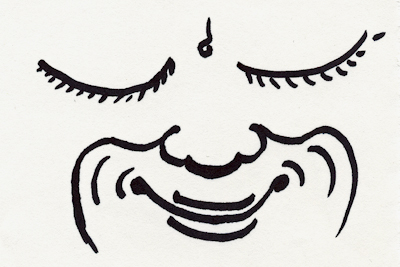 As many of you know, our free books are distributed to prison libraries on request, and from time to time we receive letters of thanks from prisoners and chaplains. Recently we received the following from a prisoner:
As many of you know, our free books are distributed to prison libraries on request, and from time to time we receive letters of thanks from prisoners and chaplains. Recently we received the following from a prisoner:
I know myself how hard it can be to figure out Buddhism without clear teachings. I had been attracted to Buddhism for years, yet even after a college course I still couldn't figure out what it was.
Sitting in meditation seemed like a ridiculous waste of time. I still remember my "motor-mind" planning out a week's worth of activities and chores, because I had no concept of the mind being able to do anything but stay in constant motion.
Then a bad situation, then jail. I first found Lama Yeshe's and Lama Zopa Rinpoche's books in the jail library. I was reading anything that was "philosophical," looking for the possibility of peace in a torturous world.
I still remember speed-reading through Peaceful Stillness of the Silent Mind, deliberately skipping the meditation breaks because I knew how ridiculous that was. After reading all the LYWA books, I read all the other Buddhist books I could find, and saw that they all kept coming back to the same thing: intellectual information, without practice, is ultimately a futile path.
So I started meditating. I have found breaks in the motor-mind, and stretched them out, bit by bit. I have found that there can be peace in a torturous environment or circumstance--if I can make room for it.
Peaceful Stillness was the first book that opened up to me that possibility (even though I hurriedly ignored it at the time) so being able to share that teaching with others is very encouraging.
Please share this letter, and my thanks, with whoever was able to make a donation.
So please join with us in rejoicing over all these Dharma books in print and in the generosity of those who have sponsored them! How wonderful it is!
Our Latest Multimedia Title: The Importance of Motivation
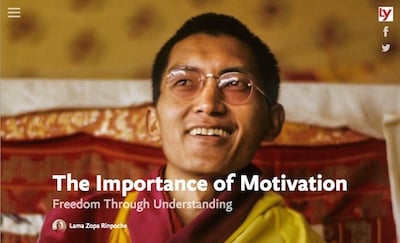 LYWA announces our next multimedia title based on the LYWA free title Freedom Through Understanding. In The Importance of Motivation, Lama Zopa Rinpoche explains how we must prepare our minds to listen to Dharma teachings by establishing a pure motivation. This motivation is vital to making our Dharma study the cause of happiness. The most perfect pure motivation is the mind of bodhicitta.
LYWA announces our next multimedia title based on the LYWA free title Freedom Through Understanding. In The Importance of Motivation, Lama Zopa Rinpoche explains how we must prepare our minds to listen to Dharma teachings by establishing a pure motivation. This motivation is vital to making our Dharma study the cause of happiness. The most perfect pure motivation is the mind of bodhicitta.
The Importance of Motivation follows How to Meditate by Lama Yeshe and adds to our growing collection of multimedia Dharma titles including the Bodhisattva Attitude multimedia series. Please see our full multimedia catalog here. We hope your experience of this precious Dharma is only deepened by engaging the Dharma in this multidimensional way.
New Teachings and Advice on our Website
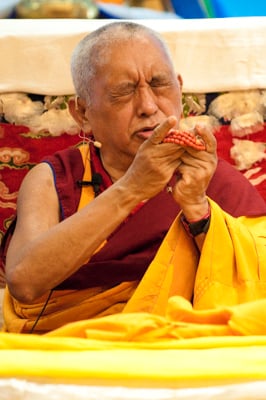 For many years we have had the audio recordings of Lama Zopa Rinpoche's commentary and partial oral transmission of the Sutra of Golden Light given at Maitripa College in Portland, Oregon in November 2007 on our website.
For many years we have had the audio recordings of Lama Zopa Rinpoche's commentary and partial oral transmission of the Sutra of Golden Light given at Maitripa College in Portland, Oregon in November 2007 on our website.
Now, the accompanying transcripts are available as well! In these teachings Rinpoche covers topics such as why we need to practice Dharma, the benefits of the Golden Light Sutra, and training the mind in bodhicitta. You can listen to these precious teachings while reading along with the unedited transcript!
We have also just posted new advices to Rinpoche's Online Advice Book. These include:
* Refuge is Most Wise: Rinpoche advised a student that by relying on Buddha Dharma and Sangha, she can achieve the fully awakened mind, sang-gyä. Rinpoche also discussed the qualities of Lama Lhundrup.
* Watching the News: After seeing images of the suffering of many people on television, Rinpoche made these comments.
* Continue With Loose Retreat: A student wrote to Rinpoche about his experiences during a recent retreat. Rinpoche advised to continue with a light retreat, doing sessions in the morning and evening, and going to work during the day.
* Financial and Relationship Difficulties: A student was losing money every month and could not make a living any more. He also asked about his friend's relationship problems.
As always, you can view the latest advices posted on our website.
This Month's eFree: Lama Yeshe’s Ego, Attachment and Liberation
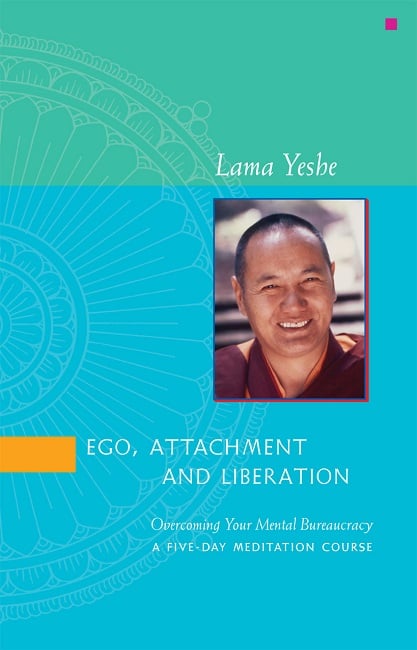 Each month the Archive offers you the chance to download a different ebook title for free from any of our ebook vendors. This month's offering is Lama Yeshe’s Ego, Attachment and Liberation which contains the teachings and meditations Lama gave at a five-day retreat he led near Melbourne, Australia in 1975.
Each month the Archive offers you the chance to download a different ebook title for free from any of our ebook vendors. This month's offering is Lama Yeshe’s Ego, Attachment and Liberation which contains the teachings and meditations Lama gave at a five-day retreat he led near Melbourne, Australia in 1975.
And, if you feel so inspired, please also consider adding your review of Ego, Attachment and Liberation to our Amazon page. When you offer your review of this or any other LYWA title, you are helping many more people find the teachings of Lama Yeshe and Lama Zopa Rinpoche.
Spring in Lincoln Massachusetts
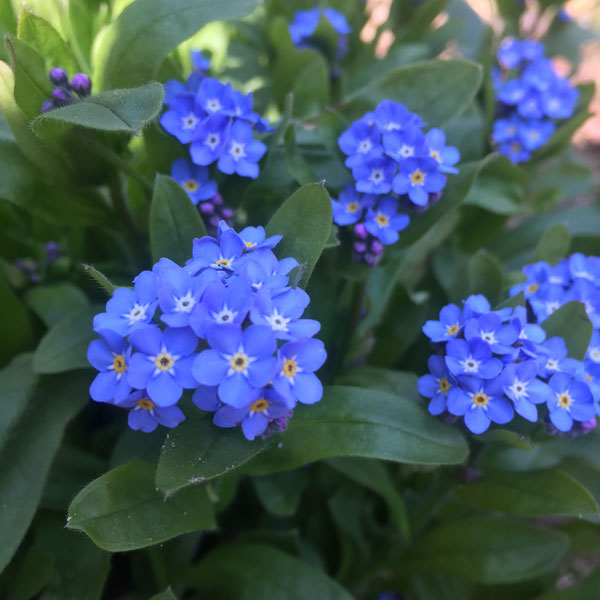 After a strange winter that included both stretches of warm weather and late frosts, the flowers have finally started to bloom! The gardens around our house are lovingly tended by Ani Desal and Wendy Cook, and Wendy has taken this picture of some of our early flowers to share with all of you. We have many more pictures than can be included here, so we invite you to enjoy more lovely pictures from our gardens on our Facebook page.
After a strange winter that included both stretches of warm weather and late frosts, the flowers have finally started to bloom! The gardens around our house are lovingly tended by Ani Desal and Wendy Cook, and Wendy has taken this picture of some of our early flowers to share with all of you. We have many more pictures than can be included here, so we invite you to enjoy more lovely pictures from our gardens on our Facebook page.
Thank you again for your kind support of the Archive. We can't do it without you. So if you have not yet made your Saka Dawa month donation, please do it here. And just to make the point once more, here's Rinpoche telling us why and how to rejoice.
Much love,
Nick Ribush
Director
This Month's Teaching: Rejoicing is the Best
 The fourth limb of the seven-limb practice is rejoicing. This is a very important practice and we should do it each day as many times as possible. It is the easiest way to accumulate merit. By doing this practice we can accumulate merit as infinite as space. Rejoicing increases merit, like investing $100 and then constantly receiving interest until we have thousands, tens of thousands, hundreds of thousands and then millions of dollars. When we rejoice, the merit increases greatly.
The fourth limb of the seven-limb practice is rejoicing. This is a very important practice and we should do it each day as many times as possible. It is the easiest way to accumulate merit. By doing this practice we can accumulate merit as infinite as space. Rejoicing increases merit, like investing $100 and then constantly receiving interest until we have thousands, tens of thousands, hundreds of thousands and then millions of dollars. When we rejoice, the merit increases greatly.
It is said in the teachings that among the virtues, or good karmas, the best one to practice is rejoicing. In other words, if we want to create good luck, rejoicing is the best way. People usually think that luck is something that comes from its own side. That's completely wrong. It is not that luck suddenly comes from outside, without our having to create it. Luck comes from our mind. If we experience good luck, it's luck that we have created with our mind. If we are going to experience luck, we have to have created it. There is no way we can experience luck that other people have created or independent luck, which has no creator. We create our own luck by having faith in karma and by knowing how to practice Dharma. With the seven-limb practice, mandala offering, bodhicitta, meditation on emptiness and the various other practices, as well as with Vajrayana practice, we create so much good luck.
Among the virtues, rejoicing is the best, because it is the easiest one to practice. It simply involves our mind thinking, and the merit we accumulate is infinite. If we rejoice in our own merit, we accumulate more merit than we actually accumulated by doing the virtuous action. When we rejoice in the merit of other sentient beings, if their level of mind is lower than ours, we accumulate more merit than they accumulated; but if their level of mind is higher than ours, we get half or a quarter of that merit. If we rejoice in the merit one bodhisattva accumulates in one day, we accumulate half or a quarter of that merit. If we were going to accumulate the merit that one bodhisattva accumulates in one day, it would take us 15,000 years without rejoicing, but by rejoicing we can accumulate in a few seconds the merit that would otherwise have taken us 15,000 years.
Generally in our life we should practice rejoicing as much as possible. We should rejoice whenever we see good things happening to other people. When other people develop their Dharma practice and have realizations, have education, wealth, happy families or many friends, we should always think how wonderful it is. When somebody succeeds in business or any other good thing happens to them, we should always rejoice, thinking, "How good it is! How wonderful it is!" It then becomes the best business for us. Why? Because by rejoicing we are creating the cause for success, success in our Dharma practice, success in benefiting sentient beings and the teachings, and success in even the ordinary activities of this life. By rejoicing, we are creating the best cause for success. But if we feel jealous of other people's success, which is the opposite of rejoicing, we create obstacles for our own success. It is important to understand this and to practice rejoicing.
We should feel as happy as a beggar who has unexpectedly found a million dollars in the garbage. You can't believe it. It's like a dream. There is no way to experience happiness without good karma. That is natural, a dependent arising. Without good karma, there is no way to experience happiness or success at all. All happiness, up to the happiness of enlightenment, comes only from good karma; therefore, it is extremely precious.
With this awareness, we should rejoice. Think, "How wonderful it is that I've accumulated so much merit in the past, in the present and in the future." Think this twenty-one times. Practice it right now.
Then practice rejoicing in the merit of other sentient beings, particularly that of bodhisattvas. I mentioned before the great profit that comes from rejoicing in the merit that one bodhisattva accumulates in one day. Then rejoice in the merits of the three times [past, present and future] of all the buddhas. They create so much merit in the three times, which results in so much happiness, including the achievement of enlightenment. Again think, "How wonderful it is! How wonderful it is! How wonderful it is!" Count your repetitions.
Sentient beings normally create negative karma and it's very difficult and very rare for them to create good karma, or virtue. We should feel much happiness because it is only through their own practice of good karma that they can have happiness. We should cause them to accumulate merit, but how wonderful it is that they are putting effort from their own side into accumulating merit.
When you rejoice in the merit of other sentient beings, if it is more comfortable for your mind, rejoice first of all in those to the east, then to the south, then west, then north, then up and down. Rejoice in that way if you find it more comfortable.
Then rejoice in all the people in Tibet who have accumulated merit in the three times. After that, rejoice in all the people in Nepal who have accumulated merit in the three times. Then rejoice in all the people in India who have practiced virtue and accumulated merit in the three times. In Dharamsala, where His Holiness the Dalai Lama lives, so many people, both lay and ordained, are practicing Dharma. Then think of all the other Buddhist countries and rejoice in all their merits of the three times. Then think of all the sentient beings in the whole world. You can also be more specific. This makes it even easier to rejoice, because you relate to particular people in each country.
To practice rejoicing is very enjoyable, because when you rejoice your mind is happy. It is easy for your mind to get upset, angry or jealous when you don't rejoice in your own merit and good things and in other people having good things. If you don't rejoice, your mind is unhappy; but if you rejoice, you naturally have a happy mind.
Rejoicing is the specific remedy for jealousy, so if you feel a lot of jealousy, you should practice rejoicing. The result of rejoicing is that you achieve a buddha's holy body, which has no ugliness, only beauty. Rejoicing is something you can practice while you are eating, while you are walking, while you are lying down, while you are working. You can do it even when your body is engaged in doing something else.
It might be good to rejoice in your own merit in one session and then rejoice in the merit of others in the next session. It's very good to count on a mala. Or in the first session you could rejoice more in your own merit, then rejoice in other's merit one time at the end; in the second session you could rejoice more in others' merit, then rejoice one time in your own merit. You can do it in different ways.
Edited from Lama Zopa Rinpoche's 1991 nyung nä teachings in Taiwan by Ailsa Cameron; lightly re-edited for this eletter by Nick Ribush.































